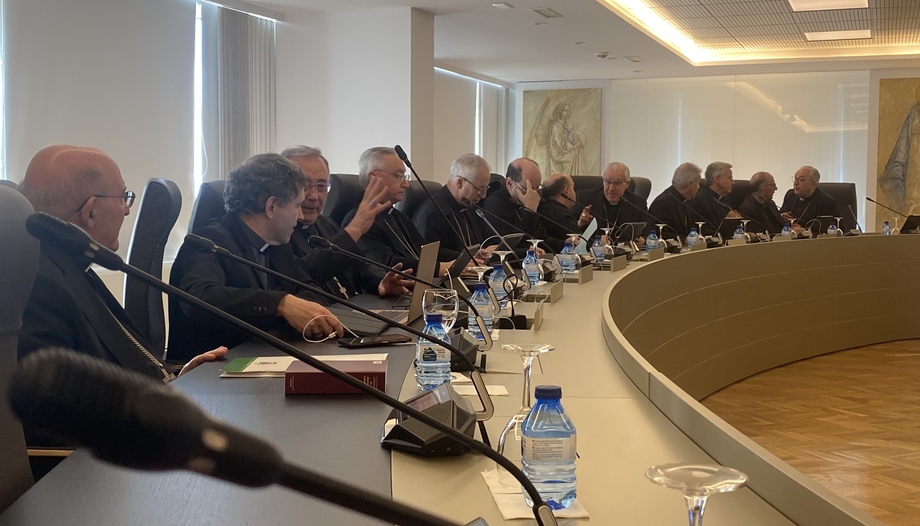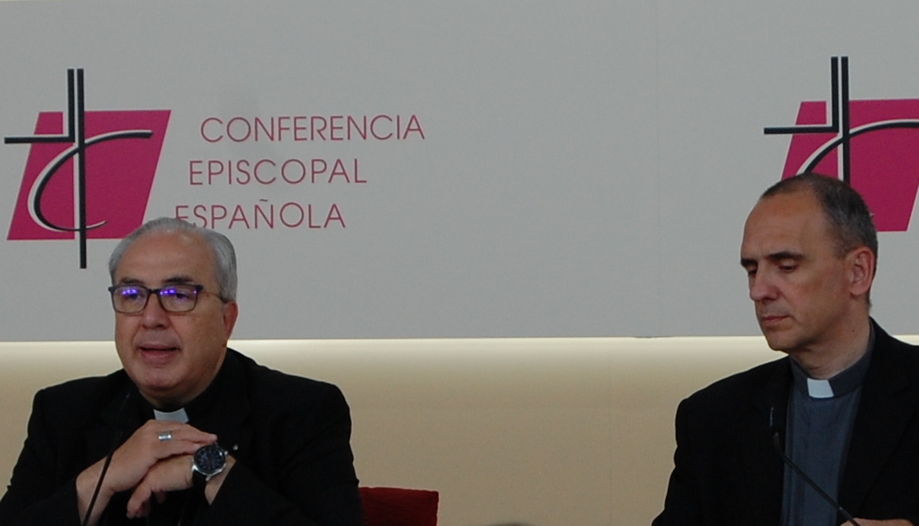The Standing Commission of the Spanish Episcopal Conference met at the beginning of July. After the sessions, the Secretary General of the Episcopal Conference, Francisco César García Magán, appeared before the media to report on the work carried out.
The first topic addressed by the Secretary General during the meeting was press conference was the approval by the Standing Commission of the "Plan of Integral Reparation for the Victims of Sexual Abuse of Minors and persons with similar rights (PRIVA)". This is, in the words of García Magán, "a plan of action in cases where it is not possible to follow the judicial route, neither civil nor canonical", but which also seeks "full reparation to the victims".
This plan, which will seek the approval of all the Spanish bishops in the Extraordinary Plenary Assembly convened for July 9, has been carried out in dialogue with the Secretary General of the Spanish Conference of Religious (CONFER). Likewise, the Secretary General of the Episcopal Conference assures that they have held meetings with the victims and have dialogued with the Government of Spain. However, when asked by the journalists, García Magán explained that they will not explain to what extent the contact with the victims has influenced PRIVA.
Response to victims of abuse
Although the PRIVA document has not yet been released, at the press conference they did say that it "establishes criteria for the evaluation and application of the plan". The cases to which it is mainly oriented are those "in which the victimizer has died or the case is time-barred, in order to offer an adequate reparation that responds to the demand that each particular case requires".
The objective, explained Monsignor García Magán, is to be able to carry out an authentic accompaniment, so that the victims have spiritual, medical and psychological assistance, and that they receive economic reparation.
In the same way, the Secretary General announced that the document does not indicate any number of victims, as they consider that "the important thing is to give an answer, not a number".
Seminaries, the Council of Nicaea and supernatural phenomena
Another of the topics dealt with by the Permanent Commission was "the draft of the Plan for the application of the criteria for the reform of the seminaries in Spain". After the contributions made in recent days, the document will be submitted for study during the Plenary Assembly to be held in November.
On the other hand, the President of the Episcopal Commission for the Doctrine of the Faith proposed to the Permanent Commission that "a Declaration be drawn up on the occasion of the 1700th anniversary of the Council of Nicaea. According to what was explained in the press conference, such a Declaration would take place during "an ecumenical celebration based on the Creed".
The same Episcopal Commission has also worked on the question of the role that the Episcopal Conference would have "in the process of discerning supernatural phenomena and apparitions in the light of the document"The Vatican on this issue.
Major events in 2025
Monsignor García Magán also pointed out during the press conference that the Episcopal Conference is working on two major events that will take place in 2025. On the one hand, there are the activities that the Spanish Church is preparing for the Jubilee; on the other hand, there is the National Vocations Congress that will take place next year in Madrid from February 7 to 9.

Other issues and a mistake in the press release
Finally, the Secretary General of the Episcopal Conference mentioned that the Permanent Commission has approved the calendar for 2025. As events to be highlighted, the bishops will hold their spiritual exercises from January 12 to 18; the Plenary Assemblies will be from March 31 to April 4 and from November 17 to 21; finally, the Permanent Commission will hold its working meetings on February 25 and 26, June 17 and 18, and on September 30 and October 1.
García Magán took advantage of his intervention to point out that there was an error in the press release sent to journalists. The bishops carried out an "internal reflection on the document 'Fiducia supplicans'", but it was not really foreseen "the publication of any document" in this regard, contrary to what the note indicated.
Belorado case and migratory crisis
In response to questions made after his intervention, the Secretary General has indicated that "officially there has been no talk of Belorado", in reference to the excommunication of the Poor Clare nuns of Burgos. In spite of this, García Magán has described the case as "a painful and very regrettable issue", while praising the performance of the Archbishop of Burgos, who is standing out for his "clarity, charity and patience".
In another order of things, the secretary spoke briefly about the migratory crisis in the Canary Islands and the note of the bishops of the islands, supported by the Episcopal Conference. In this sense, he declared that the episcopate rejects "the ideological and political use of the migratory crisis" and has described the work of helping immigrants as a defense of life in its totality.
Appointments and renewals
To conclude his speech, the Secretary General mentioned some of the appointments and renewals of positions that took place during the meeting of the Standing Committee.
Among the appointments are the national consiliary of the "Cursillos de Cristiandad" movement, the bishop of Alcalá de Henares, Monsignor Antonio Prieto, and the spiritual advisor of the "Catholic Charismatic Renewal of Spain" association, the priest Francisco Javier Ramírez de Nicolás.
On the other hand, among the renewals are José Gabriel Vera as director of the secretariat of the Episcopal Commission for Social Communications, and Manuel Bretón as president of Cáritas Española.








